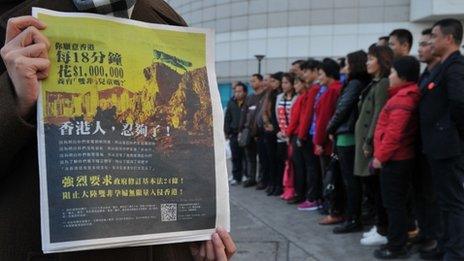Hong Kong marchers demand China uphold democracy pledge
- Published
BBC Hong Kong correspondent Juliana Liu: "Protesters remain unconvinced of the message. They do not trust Mr Leung and they believe he is Beijing's man"
Tens of thousands of people have marched in Hong Kong to demand China honour promises to hold fully democratic elections in 2017.
Crowds braved pouring rain for the annual pro-democracy rally, on the 16th anniversary of the former British colony's handover to China.
Marchers called for universal suffrage and criticised the leadership of the current chief executive, CY Leung.
Hong Kong's top official is currently chosen by a group of 1,200 electors.
Earlier Mr Leung said that the Hong Kong government was committed to introducing full democracy by 2017.
Speaking at a ceremony on Monday, he described "implementation of universal suffrage for the chief executive election in 2017" as a "major task" for the Hong Kong government.
"We hope that people holding different views can set aside their differences and seek consensus as far as possible in an accommodating, pragmatic and peaceful manner," he added.
He said consultations on deciding the scope of the elections would begin "at an appropriate time".
However, pro-democracy activists say progress on reform has been slow and fear interference in the nomination process from Beijing.
The BBC's Juliana Liu in Hong Kong says they want a commitment that the nomination process will be fair, and that candidates not perceived as loyal to the Chinese government will stand a chance.
"The right to elect a chief executive is a basic political right, which we have been denied for many years," said pro-democracy lawmaker Albert Ho. "We can't afford to wait any longer."
Hong Kong currently has a complex voting system with only some seats in the Legislative Council chosen by the public. Mr Leung was elected last year by a small group of electors largely loyal to Beijing, our correspondent reports.
Pop concert
Organisers said they expected up to 400,000 people to take part in the march.
Protesters gathered in Victoria Park on Hong Kong Island, before starting the march to Central, Hong Kong's main financial district.
Two hours after the rally had started, there were still new protesters entering the park to join the march, Hong Kong media reported.
Participants could be heard shouting "CY Leung step down" and "protect Hong Kong".
One protester, James Lam, said: "I am here to fight for democracy and freedom. If Hong Kong people did not come out to fight for our freedom, we would lose it in the future."
Some also held up posters calling for the release of Nobel Peace Laureate Liu Xiaobo, who is in jail in mainland China on subversion charges.
In an indication of the level of anti-China sentiment among some protesters, a number of participants held up Hong Kong's colonial flag, which was used prior to 1997, when the city was a British colony.
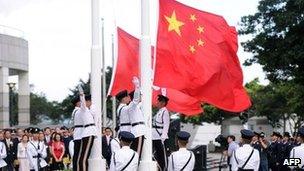
An early-morning flag raising ceremony kicked off the handover commemorations
In addition to demanding universal suffrage, protesters are also rallying against high property prices and income inequality.
The march took place on the anniversary of Hong Kong's handover to China in 1997.
A pro-government rally and a pop concert were also being held on 1 July, which is a public holiday in Hong Kong. Some retailers also offered major city-wide discounts on Monday.
Critics have described these as attempts to draw people away from the pro-democracy march.
The demonstration has become an annual event since 2003, when 500,000 protesters turned out in opposition to a proposed national security bill and the economic downturn.
The protest contributed to then chief executive Tung Chee-hwa resigning the following year.
Hong Kong is governed under the principle of "one country, two systems", under which China has agreed to give the region a high degree of autonomy and to preserve its economic and social systems for 50 years from the date of the British handover.
- Published1 July 2013
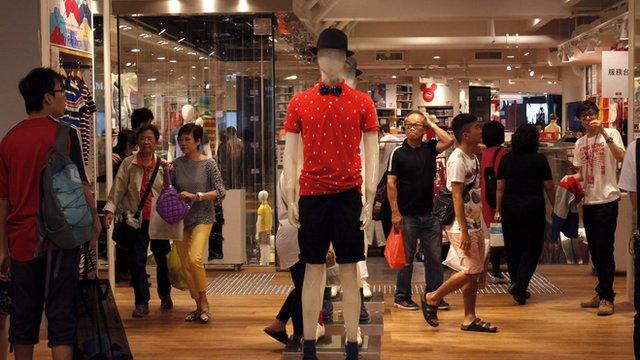
- Published1 September 2012
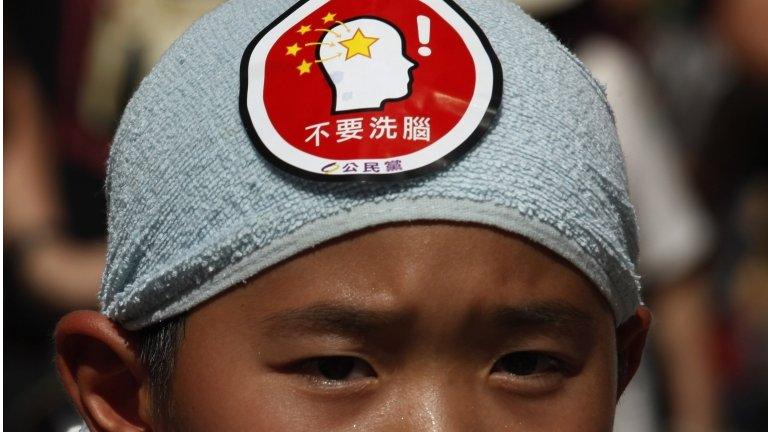
- Published7 January
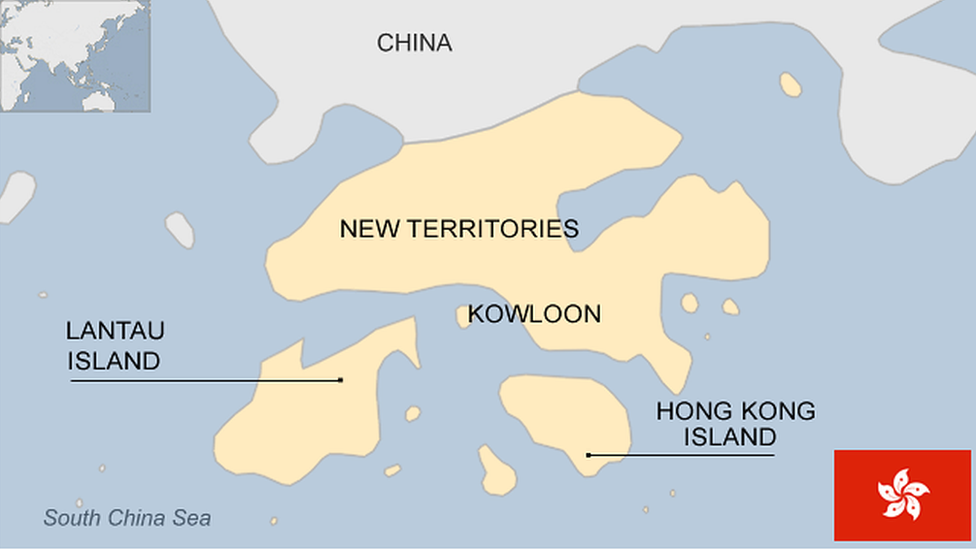
- Published1 January 2013
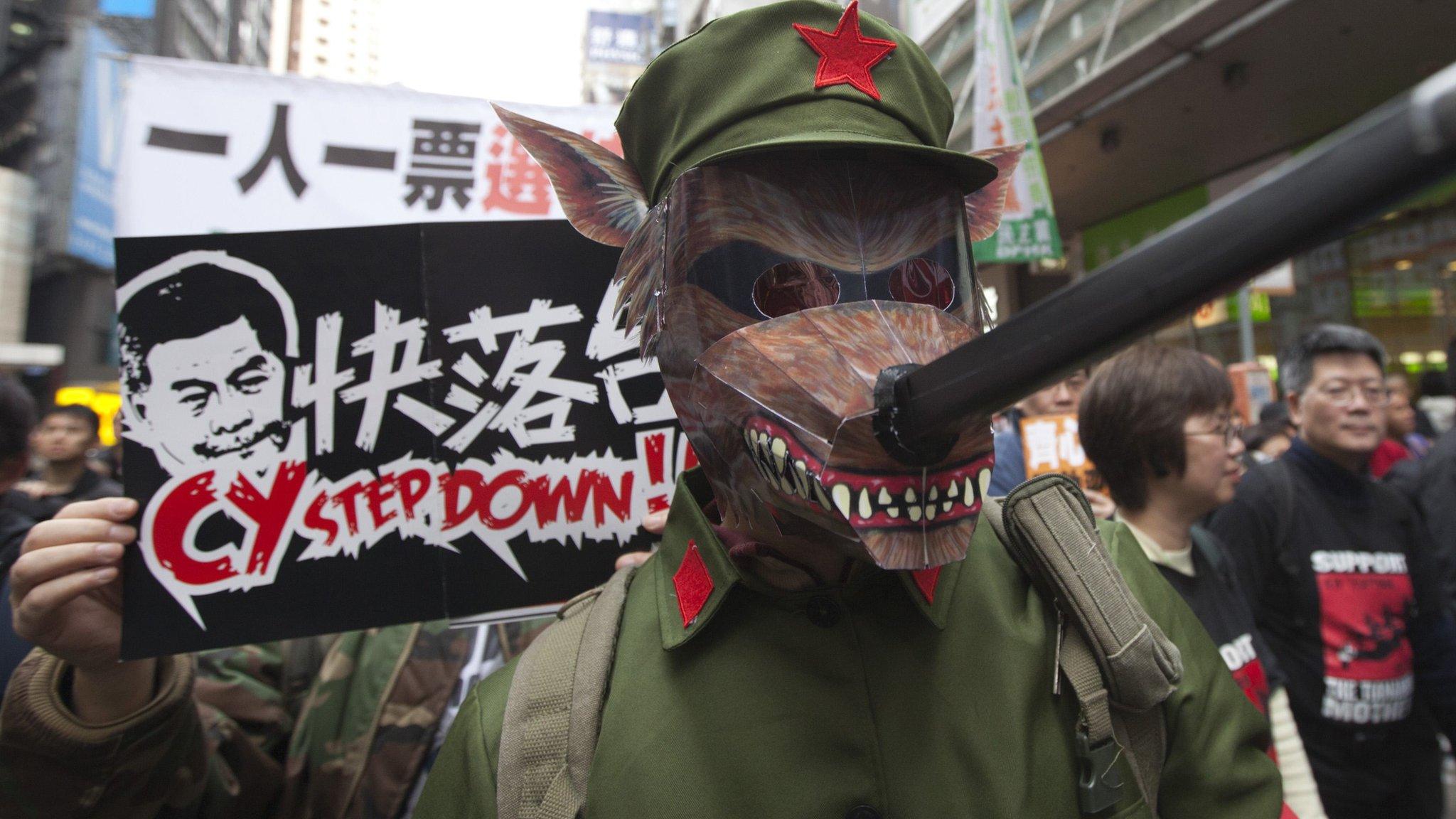
- Published10 September 2012
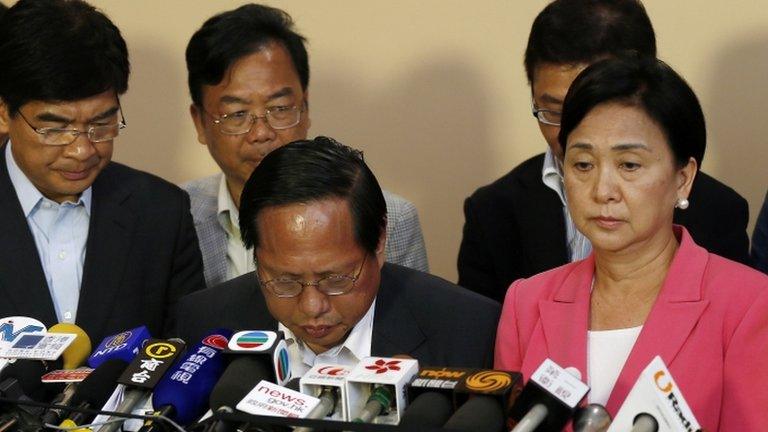
- Published1 July 2012
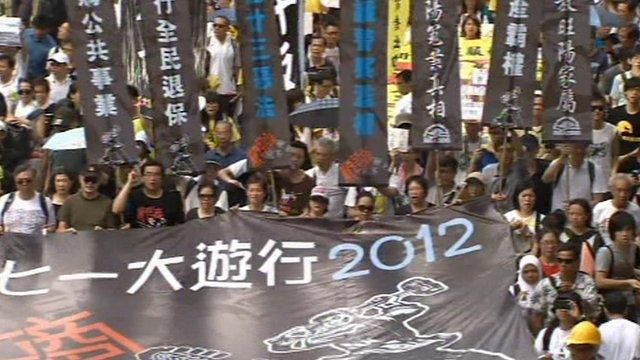
- Published23 March 2012
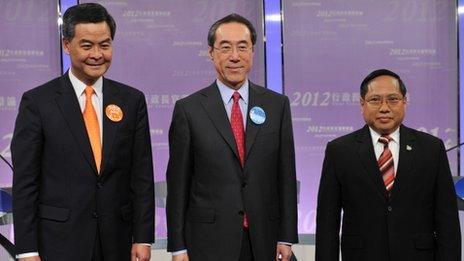
- Published8 February 2012
